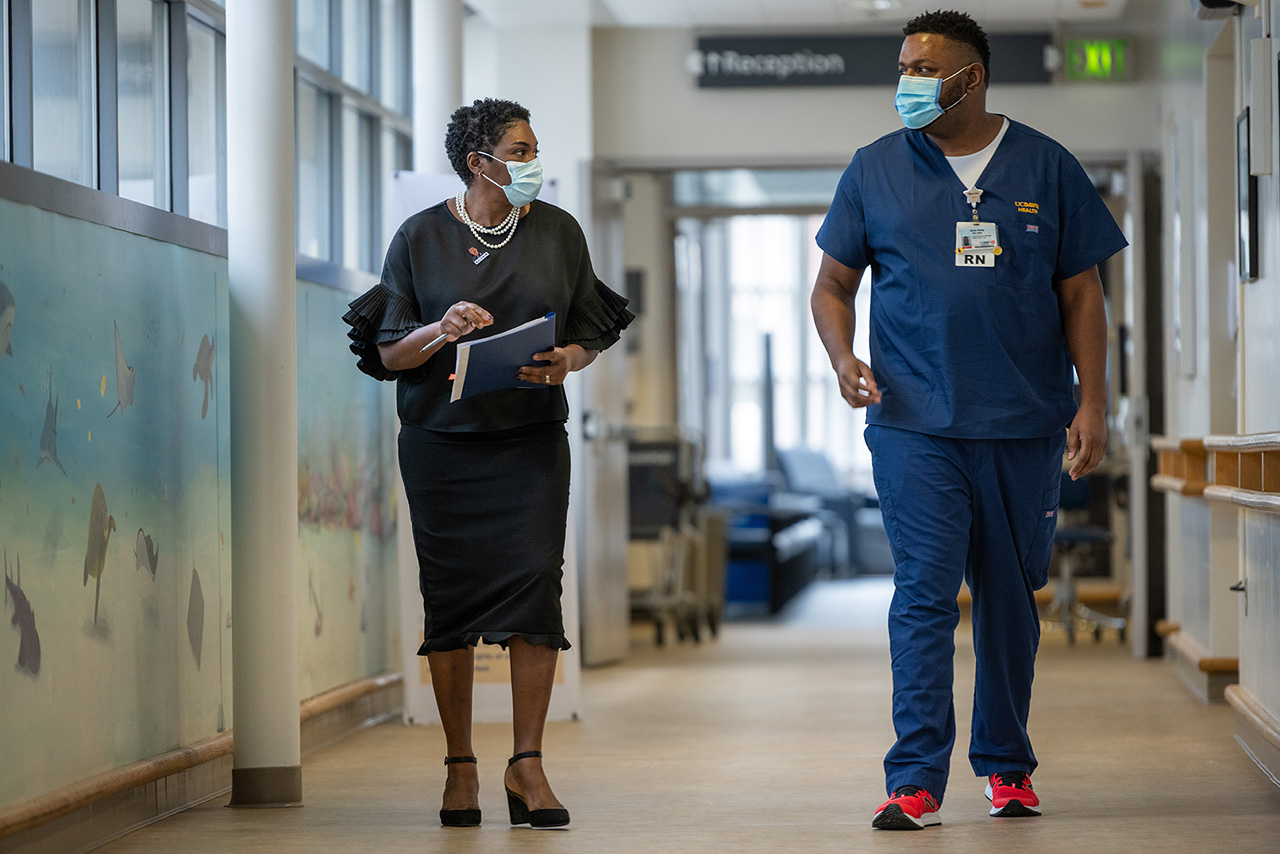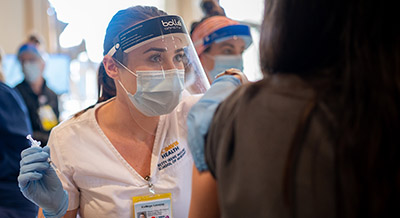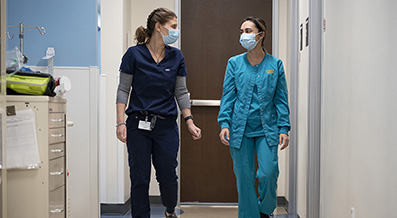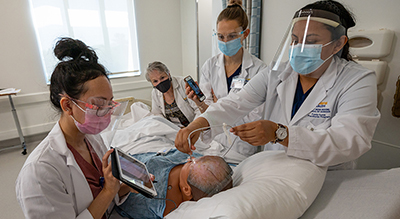Aron King saw himself as a bedside nurse. But when he came to the Betty Irene Moore School of Nursing at UC Davis, he found his purpose and a new trajectory to change the futures of more African Americans.
“I really wanted to push my family forward and education does that,” says King, an assistant nurse manager at UC Davis Health and alumnus of the master’s-degree leadership Class of 2021. King is part of the final Master of Science — Leadership Degree cohort, the school’s flagship program that matriculated its first class of 25 students in October 2010.
Throughout a decade, the program sought registered nurses focused on important societal health issues through the work of advancing health and improving the systems that provide health services. Many of the 220 alumni say they were drawn to the School of Nursing because they were frustrated with the status quo. They sought to develop the skills to lead transformative change beyond the bedside at the systems’ level.
Upon arrival at the School of Nursing, King connected with alumni who launched the Capitol City Black Nurses Association (CCBNA) and faculty who taught from a multicultural perspective. Witnessing their influence and realizing his own potential, he took on new leadership roles in the community and his profession. Today he serves as secretary of CCBNA.
“Being a graduate-prepared nurse, you can influence change at a different level,” he explains.
King focused on applying his new-found leadership skills outside the classroom. He presented at multiple conferences such as Sigma’s Zeta Eta-at-Large Chapter Research Symposium, the Advancing African Americans In Nursing Conference and the Coalition for Health Equity Conference. He addresses topics on microaggressions, building a path in the nursing field, and the weight of success on minority students. He also led virtual discussions about social justice in the summer of 2020, provided forums on COVID-19 in the Black community and amplified others’ work to promote health equity.
“Aron demonstrates his commitment to diversity and inclusion by learning, reflecting, speaking out, and staying active and engaged in these areas with the school, health campus and local community,” says Piri
Ackerman-Barger, associate dean for Health Equity, Diversity and Inclusion and King’s thesis advisor. “His demeanor is one that engages others, that builds community, that makes others feel part of something important.”
King and the final class of 25 entered in 2019. School leaders reassessed workforce demand and suspended the program that year. A new proposed Doctor of Nursing Practice degree program presents opportunities to serve evolving needs in health care and strengthen community relationships for the school while continuing to prepare transformative leaders.
“Though this degree program ends, the people connected to its experience and their contributions endure for generations,” explains Dean Stephen Cavanagh. “We will always innovate for the future because that is how we drive change.”
As school leaders strategically map out the future of the school, King adds to the legacy of leadership in cultural inclusiveness, knowledge of organizations and system change, teamwork and a commitment to healthy communities.
“I really want to be that change maker shared with other leadership alumni,” King says. “It may be the end of this program, but it is just the beginning for myself and many others in our final cohort.”






